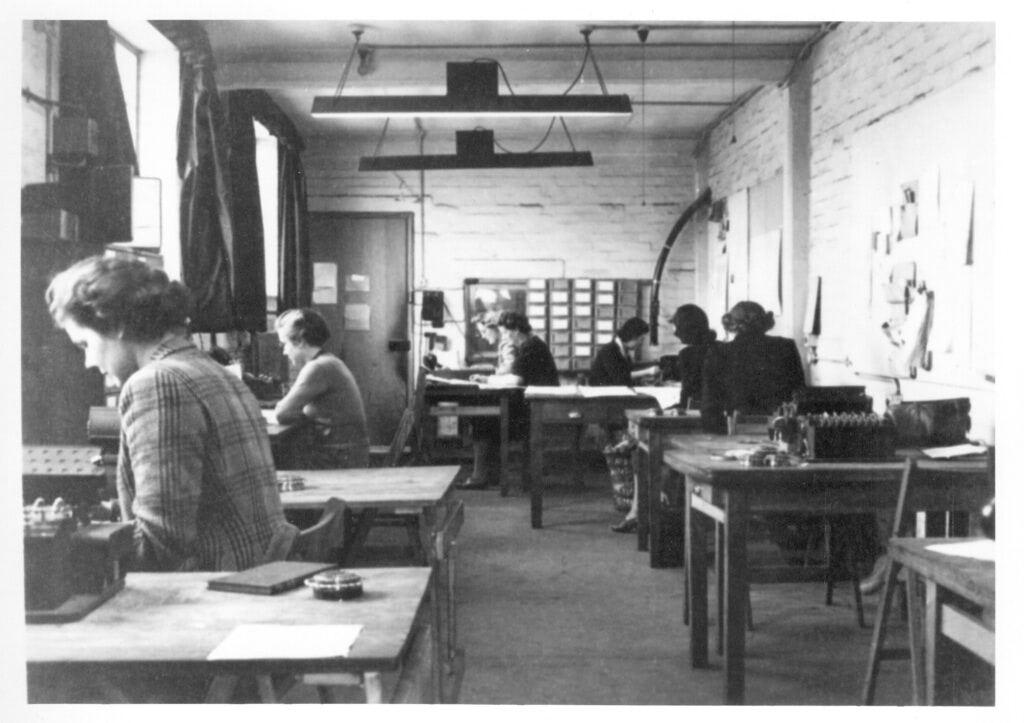Britain’s digital future is coming home to Bletchley Park

A formidable consortium led by Milton Keynes College is announcing plans to establish an Institute of Digital Technology at Bletchley Park, home of the World War Two Codebreakers.
The group comprises recognised experts in education, technology, heritage, automotive and finance and expects that eventually a thousand students and adult learners a year will study to become a new wave of Bletchley Park alumni in a wide range of digital skills.
The group includes Microsoft, KPMG, Cranfield University, VWFS (Volkswagen Financial Services), Evidence Talks and City & Guilds, as well as the College and the Bletchley Park Trust.
The plan is to restore the currently derelict Block D creating an inclusive centre for the teaching of technical qualifications, apprenticeships, and other training to help redress the desperate shortage of skilled people in the sector.
The institute will seek to recruit and train specialists in a whole range of fields including Network Engineering, Software Engineering, Development & Testing, Applications Development, Data & Business Analytics, Intelligent Systems, Games Development, Communications & Digital Marketing, and of course, Cybersecurity.
A recent study from the industry association, ISC Squared, suggests more than two thirds of UK companies are unable to recruit the specialists they need to defend themselves against digital attacks.
The report says that within two years there will be a global deficit of 1.2 million security professionals. In terms of overall digital competence, British industry faces a persistent shortfall of around 40,000 skilled people.
75% of the members of The British Chambers of Commerce say they lack the staff with the requisite training and ability to meet their digital needs.
“Bletchley Park is synonymous with the security of this nation and so I cannot think of a more appropriate place to train the next generation of cybersecurity experts that will protect the UK from the growing threat of cyberattacks,” says Derrick McCourt, General Manager of the Customer Success Unit at Microsoft UK. “Digital skills are becoming increasingly vital to the success of the UK economy and we share Milton Keynes College’s ambition to help students develop the skills and practical expertise that employers want and need – both now and in the future.”
The transformation from code breaking to code writing at the historic location is a perfect fit with the government’s aim to turn the Oxford, Milton Keynes, Cambridge growth corridor into the UK’s Silicon Valley. The Department for Business, Energy & Industrial Strategy published a document (Industrial Strategy: building a Britain fit for the future) in November which says,
“In the Cambridge–Milton Keynes–Oxford corridor we have agreed an ambitious programme of infrastructure, housing, business investment and development. Estimates by the National Infrastructure Commission (NIC) suggest that, with the right actions, annual output of the corridor could increase by £163bn per annum by 2050 – approximately doubling the growth expected to happen without government intervention”
Bletchley Park’s location is doubly advantageous, also lying halfway between London and Birmingham.
Dr Julie Mills, Principal and CEO of Milton Keynes College says:
“Bletchley Park was chosen immediately before the war to be the home of the Government Code and Cipher School, in part because it was midway between the two great university cities and in easy reach of London. Today those three key centres are even closer. Milton Keynes is thirty-two minutes by train to central London. It’s already a hotbed of digital research and development being home to more than three and a half thousand ICT companies¹ and having excellent global connectivity. The location is as perfect as it was in 1939, in just the right place to make a significant contribution to meeting the gap in digital skills which so desperately needs to be addressed for the sake of the country’s economic future.”
Sir John Dermot Turing, nephew of Alan and a member of the board of the Bletchley Park Trust, says,
“It’s absolutely fitting that Block D should be brought back to life for a purpose which is both educational and meeting a technology-related need of such significance to the nation. It would be a marvellous addition to Alan Turing’s legacy if the proposed Institute of Digital Technology were to open here. It’s exciting to think just how inspired the people who come here to learn could be, knowing in whose footsteps they will be walking.”
The consortium members are bidding for funding from the government’s Institutes of Technology fund and are hoping to secure the support and involvement of further important partners for the plans.
Dr Mills says,
“It’s central to the government’s proposals for Institutes of Technology for the curriculum to pinpoint and meet the needs of employers. At the Institute of Digital Technology at Bletchley Park, those employers will be involved in actually designing the courses studied to make certain those needs are met and hopefully exceeded.”











Responses